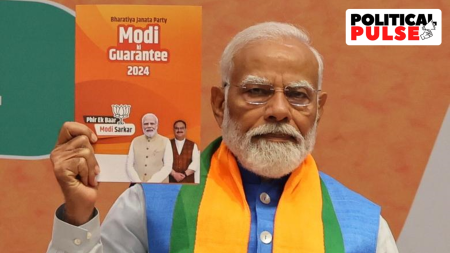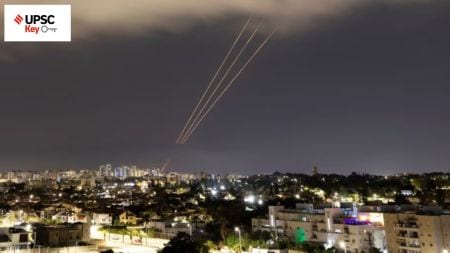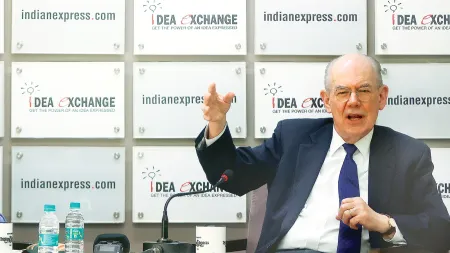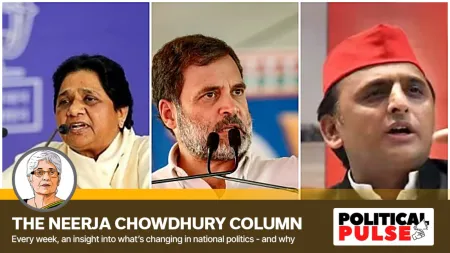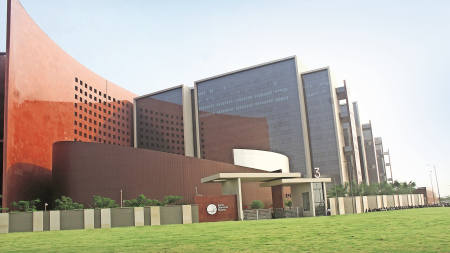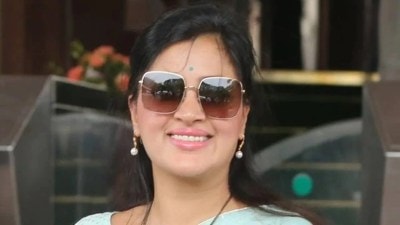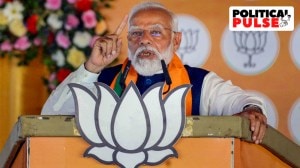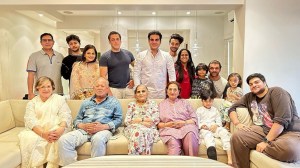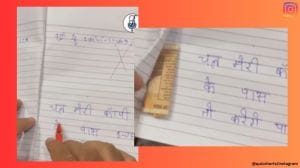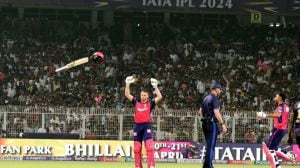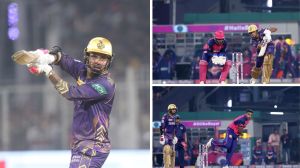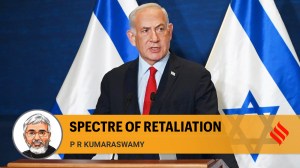- India
- International
Govt hasn’t spoken of vaccinating entire country: Health Secy
During the weekly briefing on the pandemic, Union Health Secretary Rajesh Bhushan reiterated that the “government has not spoken about vaccinating the entire country”.
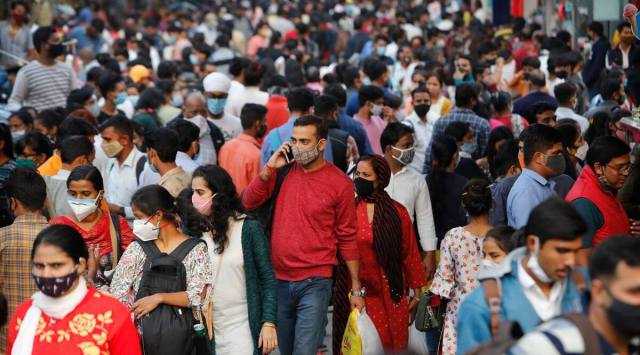 Responding to a question at a press briefing, ICMR Director General Balram Bhargava said the purpose of the COVID vaccine drive would be to break the chain of viral transmission. (AP Photo)
Responding to a question at a press briefing, ICMR Director General Balram Bhargava said the purpose of the COVID vaccine drive would be to break the chain of viral transmission. (AP Photo)WITH THE country expected to witness its largest vaccination drive – against Covid-19 — next year, the central government on Tuesday said its priority will be to first vaccinate a critical mass of the population and break the chain of transmission of the virus, indicating that the entire population may not be mandatorily vaccinated.
During the weekly briefing on the pandemic, Union Health Secretary Rajesh Bhushan reiterated that the “government has not spoken about vaccinating the entire country”. “Important to get factual information on these (on vaccinating the entire population),” Bhushan said.
DG ICMR Dr Balram Bhargava said the decision will largely depend on data on the efficacy of the vaccine candidates. “The question would depend on the efficacy of the vaccine; there is a range, it may be 60 per cent efficacy in someone or 70 per cent in another,” he said. “The second issue is that our purpose is to break the chain of virus transmission. If we are able to vaccinate a critical mass of people and break the transmission, we might not have to vaccinate the entire population.”
“Also, the role of masks is important and that will continue even after the vaccination because we are starting with a small population at a time. Therefore, mask will continue to be used to help break the chain of viral transmission,” Bhargava said.
Bhushan said the national expert group on vaccine administration is also discussing whether the population that has already recovered from the infection will have to be vaccinated. “This is one of the mandates the national expert group on vaccine administration (to examine if the people who have developed antibodies against the virus should be vaccinated). Other countries are also examining it. No final decision has been taken…” Bhushan said.

Bhargava, however, pointed out that currently, the World Health Organization’s mandate during the conduct of clinical trials is to vaccinate without ascertaining if the volunteer has developed antibodies against the virus.
“There are two issues linked in this (on vaccinating those who have antibodies). One, if someone has antibodies and if you give the vaccine, can you develop any vaccine-associated adverse reaction; second, if we measure the antibodies, can we avoid vaccine to that person, and therefore, can we spare our vaccines,” he said. “Regarding the first one, there is enough data to show that adverse reaction does not happen. However, there is discussion still going internationally. The WHO has clearly stated in all its Solidarity vaccine trials that we don’t need to measure the antibodies, even find out that person had Covid-19, and go ahead and give it (vaccine). That is in the mandate of WHO at the moment.”
Meanwhile, Bhushan said the Health Ministry has written to all states to set up an expert group to study the market and determine testing rates.
Apr 16: Latest News
- 01
- 02
- 03
- 04
- 05




